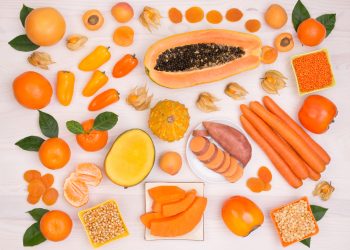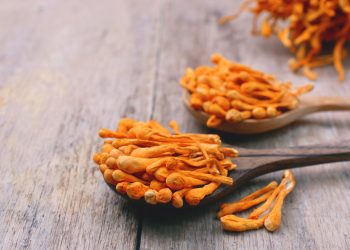In recent years, the word bioavailability has become increasingly better known in the world of supplements and pharmacology. The word sounds self-explanatory. “Bio” – which comes from the Greek word meaning ‘life’ and “availability” — the condition of being available.
But what does that really mean? And why is bioavailability important for your health? In this article, we’ll explain what bioavailability means for your health, the difference between plant and animal sources of nutrition, and why Hirsch Organic’s organ meat supplements provide superior bioavailability compared with other options. Keep reading to learn more about bioavailability so that you can make informed decisions about your health.
What is bioavailability?
Bioavailability is defined as the ability of a drug, supplement or other substance to be absorbed and used by your body to a point where it reaches the blood circulation in an active form.
Put simply, bioavailability measures how effectively your body can absorb and use the nutrients from the food or supplements you consume. For example, when people take a supplement, they imagine the benefit they’re getting is the same as the dosage they are taking. But taking a 500mg vitamin C tablet doesn’t mean all 500mg will be absorbed into your bloodstream. Other factors, such as your metabolism, gut health, and even where the nutrient was sourced, can influence how much of the vitamin is absorbed. That’s why bioavailability is so crucial, as it’s the most accurate measure of how much of the nutrient your body can access and utilise.
Unfortunately, many supplements on the market offer less bioavailability than you might expect, so, despite all your best efforts, your body might still not get the full benefit.
What is the difference between absorption and bioavailability?
Bioavailability is a sub-category of absorption. Absorption describes the process of when a substance enters the body and then moves into the bloodstream. And bioavailability is the degree to which the substance can be fully absorbed and used by your body.
What is bioavailability in biology?
The term ‘bioavailability’ in biology refers to the proportion or ‘fraction’ of a drug that successfully reaches its intended target within the body.
Traditionally, the term was used to describe how quickly a vitamin, mineral, or other nutrient entered the bloodstream. For instance, studies on magnesium and vitamin D usually use blood tests to measure how much of the nutrient appears in the blood after someone takes a supplement. However, that doesn’t always give us the full picture. [1]
Unfortunately, even if a nutrient reaches your bloodstream, it doesn’t always mean that it’s being used efficiently by the body. This might explain some contradictory results that have been observed in some studies looking at the effect of supplementation with vitamin D, for example. Although most medical professionals agree on the benefits of vitamin D supplementation, the research is often unconvincing. Therefore, it’s reasonable to conclude that some vitamin D supplements could raise observable blood levels but might not be properly absorbed or used by the body.
So, before you spend your hard-earned cash on a supplement that won’t make much difference, it’s vital to know that the supplements you take are really delivering the nutritional support your body needs.
Bioavailability: the plant vs. animal debate
When it comes to bioavailability, not all sources of nutrients are created equal. Nutrients derived from animal sources are generally more bioavailable than those from plants. Plus, animal foods provide more of other key micronutrients, e.g. vitamin A (retinol), thiamin (vitamin B1), folate (vitamin B9) and riboflavin (vitamin B2) than in plant foods.
When you eat animal-based protein, your body can digest and use it much more efficiently compared to plant-based protein. This is because plant-based proteins often come with ‘antinutrients,’ such as lectins, phytates, trypsin inhibitors, tannins and oxalates, which can reduce the breakdown and absorption of amino acids.
Research shows animal proteins provide a significantly higher protein balance in the body than plant proteins. In this study, 2 groups of participants were compared: 1 group eating animal proteins like beef and eggs, and the other eating plant proteins like beans and nuts. The results showed a higher level of protein synthesis (i.e. the process of building muscle and other tissues) in the animal protein group, due to higher bioavailability. [2]
Are organ meat supplements more bioavailable than other supplements?
If you’re searching for bioavailable supplements that your body can absorb more easily, then organ meat supplements are an excellent option.
Organ meats like liver, kidney, and heart are rich in bioavailable nutrients that play a crucial role in multiple bodily functions. We’re talking about supporting a healthy blood supply, clear vision, a strong immune function, healthy skin and muscle maintenance and development.
Hirsch’s Beef Liver Supplement is an excellent choice. Packed with essential vitamins like vitamin A, iron, and B12, it’s one of the most bioavailable ways to meet your nutritional needs. And, because our ingredients are sourced from the highest quality organic farms, we only support farmers who share our values for healthy animals and regenerative agriculture.
How to make your organ meat supplements work even better
It’s not a huge jump from the term bioavailable to ‘biohacking’ – the practice of applying knowledge of biology, genetics, neuroscience, and nutrition to enhance physical or mental performance. Like all nutrition, and even with highly bioavailable supplements like organ meats, there are ways to ensure you’re getting the most out of them. Here are some tips to make your organ meat supplements work even better: [3]
- Pair your organ meat supplements with fat-soluble nutrients: Vitamins A, D, E, and K, are all fat-soluble. That means they’re absorbed best when consumed with healthy fats. So, the perfect time to take your organ meat supplements is along with a meal that includes fats like olive oil, avocado, or nuts.
- Time it right: Many nutrients are better absorbed at specific times. For instance, it’s generally accepted that vitamin D is best absorbed between morning and midday when your body is more likely to be exposed to sunlight, whereas magnesium is most beneficial at night. Organ meat supplements can also benefit from this timing strategy, taking them first thing in the morning – especially if you’re taking them to boost energy levels.
- Good gut health: A healthy gut plays an important role in nutrient absorption. We recommend supporting your gut health with a diet that’s low in sugar, but rich in fibre, probiotics, and prebiotics to help improve the bioavailability of your supplements.
- Combining supplements: Some vitamins and minerals can either help or hinder each other’s absorption. For example, vitamin C has been proven to boost the absorption of iron9, however calcium is known to reduce the absorption of some minerals like magnesium10. It pays to be aware of the combinations you’re taking, and if you’re not sure, then discuss it with a healthcare professional.
Bioavailability – and why it’s important for your health
Understanding bioavailability and why it’s important for your health is key to making sure you get the most out of the supplements you take. Although the “nutrition facts” on the back of your multivitamin bottle might look impressive at first glance, the reality is that they’re of little use if only a small percentage is actually being absorbed!
Organ meats, with their superior bioavailability, offer a very effective way to meet your nutritional needs. With the Organic Beef Organ Mix you’re selecting a supplement that’s naturally high in bioavailable vitamins and minerals. There are no synthetics or fillers in our products, just nutrients that your body can absorb and use.









